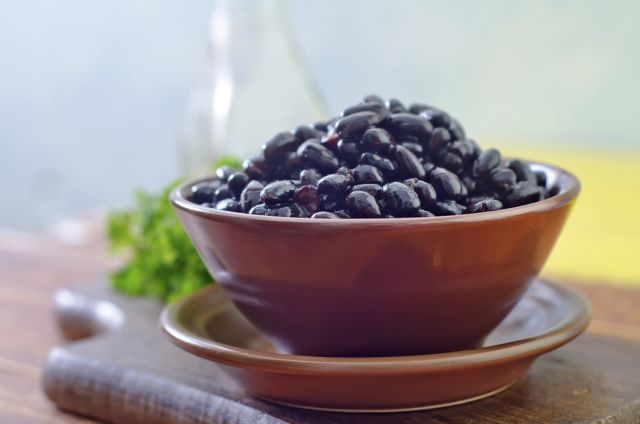Updated on September 23, 2024.
If you plan your next picnic around bean salads instead of hot dogs, you may feel just as satisfied—even if you eat the same number of calories as meat lovers. And over time, a diet that emphasizes beans may help you more effectively manage your weight.
In a 2020 review published in the journal Diabetes, Metabolic Syndrome, and Obesity, researchers found that following a plant-based diet, which includes beans and legumes like peas or lentils, can benefit health in multiple important ways, including lowering body weight and body mass index (BMI). This is an estimate of body fatness, based on height and weight.
These benefits are linked to the fact that a diet rich in plants contains a lot more fiber, plant proteins, and polyunsaturated fats. These are healthy fats that are liquid at room temperature. A plant-based diet also lowers the body’s intake of unhealthy saturated fats (which are solid at room temperature), and animal proteins which can be harmful and raise the risk of overweight and obesity.
When it comes to swapping animal protein for plant-based options, beans make an excellent substitute.
Eating more plant-based foods may help you manage your weight
In a 2023 study published in the journal Nutrients, researchers followed more than 15,000 adults in the United States over 10 years. They found that those who incorporated moderate or large amounts of legumes into their diet gained less weight overall than those who did not.
Lentils and peas are examples of legumes. They can be used in recipes just like beans. They are also a source of protein from plants, and like beans they can add more fiber and nutrients to your diet.
Over the course of 10 years, those who ate legumes gained about 17 pounds, on average. Those who did not eat legumes gained a little over 20 pounds, on average. Over time, the difference may add up.
Nutritious and tasty
Beans and legumes are diverse and delicious. Here are just a handful of the most common beans:
- Black beans
- Black-eyed peas
- Garbanzo beans (also called chickpeas)
- Kidney beans
- Navy beans
- Soybeans
Beans are rich in protein, vitamins, minerals, and nutrients. They’re also a great source of health-promoting antioxidants— plant compounds that may decrease the risk of certain cancers.
Beans also contain high amounts of fiber, which makes them very helpful in keeping bowel movements regular. The vast majority of adults in the United States don’t get enough dietary fiber on a daily basis. Depending on age and sex, nutrition experts recommend that adults eat a minimum of 25 grams of dietary fiber per day. One cup of cooked black beans provides 15 grams of fiber, which will get you well on your way toward your recommended goal.
Feeling full
Beans and legumes make an excellent meat swap because they're very low in fat and relatively low in calories, yet high in satisfying protein.
Beans contain carbohydrates, but they're the type of carbs that are processed more slowly by the metabolism, so they’re great for providing stable energy to your body over a longer period of time. Past research has even linked eating beans and peas to feeling less hungry and more full when compared to eating meals based on meat like veal and pork.
Why beans are healthier
Bean consumption has been linked to lower risks of heart disease and diabetes, and since beans grow well in a variety of climates and need less fertilizer and water, they’re more sustainable sources of protein, too.
If you're using beans or legumes in place of meat, you probably won't eat as many calories as people who eat the same amount of food in a meat-based dish. That's because you'd have to eat a lot more beans or legumes to get the same number of calories.
For example, a ½-cup (100g) serving of cooked lentils contains about 115 calories, while a 3.5-ounce (100g) serving of 85 percent lean ground beef contains about 215 calories. So making beans and legumes the focus of soups, salads, and main dishes is a great way to eat fewer calories and feel satisfied.







